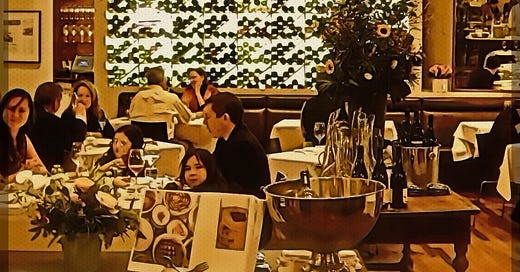Most modestly sized wine lists focused exclusively on culinary or regional themes never win “Grand Awards.” I personally don’t agree with those circumstances, but that’s the way it's been.
But focused wine lists can still win multiple acclamations and be successful where it counts: Among guests, fawning local and national media, and in terms of pure sales and profits. You would be hard pressed to find any restaurant owner who would prefer a restaurant that is not profitable over one that is, Grand Award or not.
In January 2015 I took a restaurant management group with whom I was consulting to Frasca Food and Wine in Boulder, CO, where Bobby Stuckey MS presides as owner, wine director and, as he puts it, “chief busser.” Admittedly, restaurants owned by Master Sommeliers tend to be weird, by normal industry standards. Where else do you find—as in the case of Frasca—something like half the FOH budget sunk into a dozen and a half types of wine glasses; and washing machines, entire rooms and staff dedicated exclusively to the cleaning and polishing of those glasses? Only an MS would be care that much.
But that’s not the most unusual thing about Frasca. That would be its focus almost exclusively on the cuisine and wines of Friuli-Venezia Giulia, which Stuckey executes with his Chef/Partner Lachlan Mackinnon-Patterson. If there are influences from outside the realm of Northern Italy on the menu and wine list, the emphasis still rests squarely on dishes and wines that at least emulate the delicacy, subtle earthiness, and sense of balance, clarity and delineation found in dishes and wines from Friuli-Venezia Giulia.
Yet for most of its existence, Frasca has been voted or proclaimed Colorado’s #1 restaurant, and its popularity has allowed Stuckey and Mackinnon-Patterson to more than double their operations. Frasca has garnered a James Beard Award for Outstanding Wine Service, Gourmet's Best Wine Service award, and Mobile Travel Guide's Five Star Hotel and Restaurant rating.
As one of my colleagues put it, after our dinner at Frasca: Is Friuli a town of great culinary tradition and innovation? Possibly. Was anyone in Boulder clamoring for Friulian food and wine in Boulder before Frasca opened? Probably not. Is their commitment to that identity unwavering? Absolutely! It is Frasca’s focus on the narrowest of themes, we concluded, that has been the key to its critical and financial success. Keeping it simple works.
In fact, it is often said that keeping it simple is the hardest thing for a sommelier or restaurant wine manager to do. It requires discipline, courage, and creativity. It is no longer a matter of slapping together a phone book sized list for guests and staff to decipher. In fact, there are more positives about doing the opposite. That is to say, more narrowly focused wine lists...
Are potentially more profitable because, freed from the compulsion to stock wines from every region in the world, you are no longer locked into excessive inventories.
Increase the chances of guests experiencing wines more ideally matched to your cuisine—and the better any wine tastes with a dish, the better the overall experience.
Give competitive advantage in terms of lower markups of well-known products, and higher markups of unknown products.
Tend to be more flexible, freeing you to invest in smart, time-sensitive purchases.
Are friendlier to guests and staff in respect to wine list descriptions, training programs, tasting menus, and continuous event planning.
Then there is this bottom line, which is marketing related: A narrowly focused wine program gives you a higher percentage chance of being the best at what you do, which is exactly how the most successful restaurants are perceived by their guests, their community, and even the press, both local and national. It may not be the conventional way of garnering attention and achieving profit and prestige, but it works!





